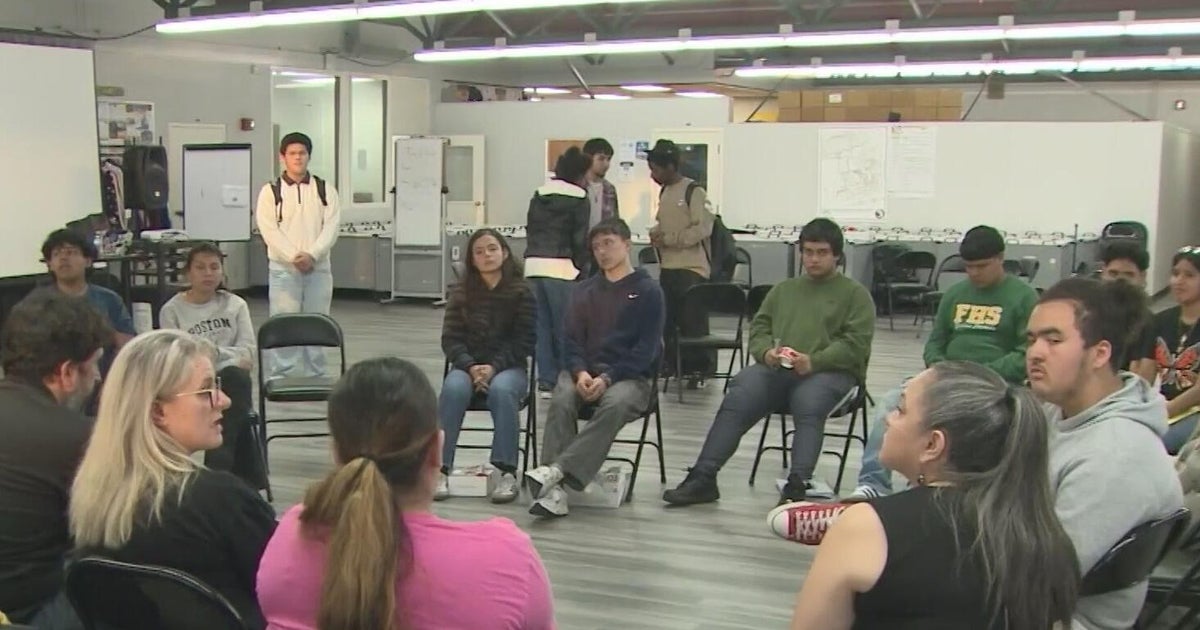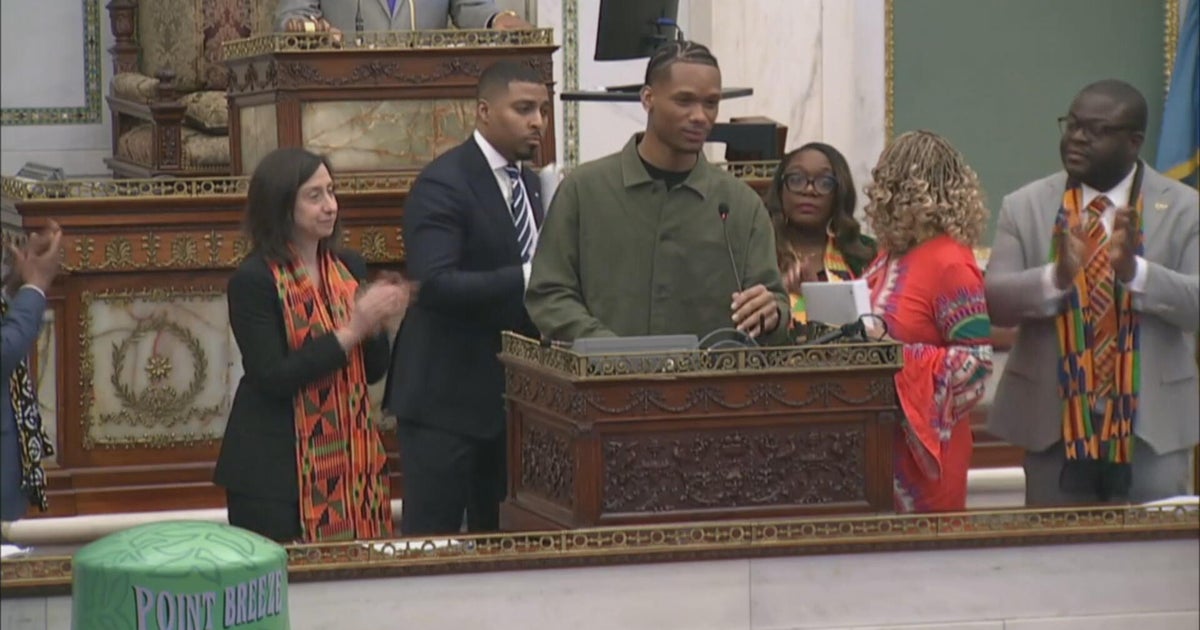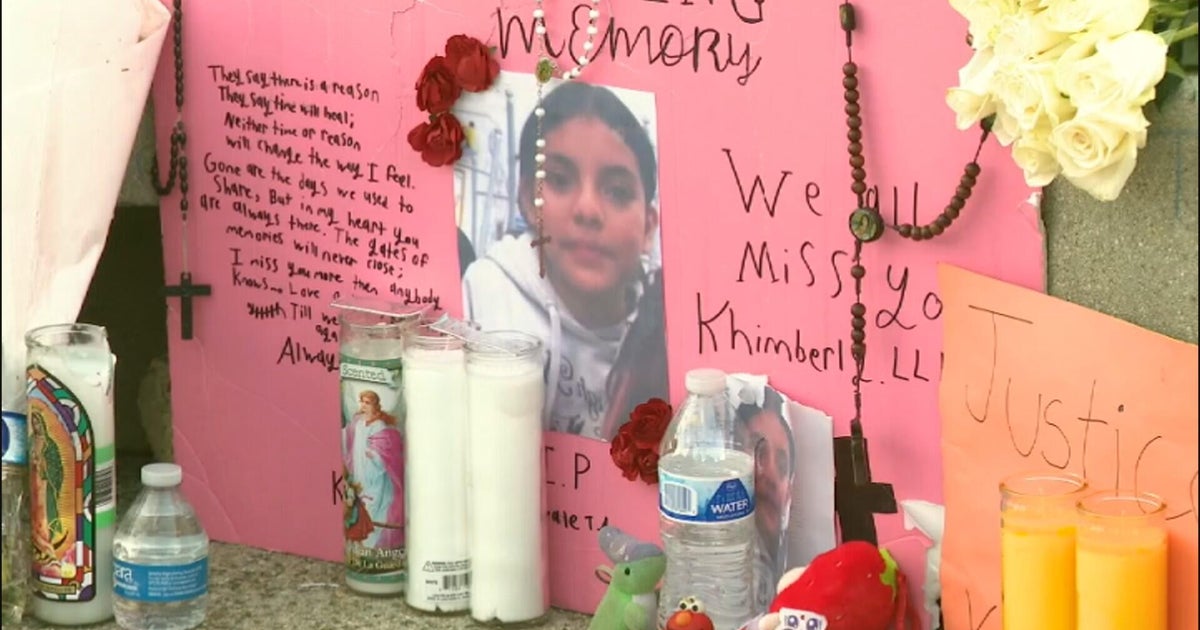Students Look To 2012 After Immigration Bill Fails
LOS ANGELES (AP) — Emboldened by months of phone calls to lawmakers, hunger strikes and sit-ins, a group of college students and graduates in Los Angeles say they plan to take their fight for immigrant rights to the states and the 2012 election after Senate Republicans blocked a key piece of legislation.
But it won't be easy.
The Senate vote Saturday to toss the proposal that would have granted young illegal immigrants a route to legal status dealt a harsh blow to student activists who will face an even steeper uphill battle in the next Congress.
Immigrants see rough times ahead in the next two years, with many Republicans vowing to push for tougher immigration enforcement, but they also say Latino voters are getting fed up with lawmakers at a time when they are accruing greater political clout.
"This is a movement," said Nancy Meza, a 23-year-old illegal immigrant and college graduate who wore a University of California, Los Angeles sweatshirt as she watched the televised vote. "We don't have lobbyists and paid staff. It's a movement by students."
In the hours after the vote, Meza and about 50 other student activists who had gathered at the UCLA Downtown Labor Center said they would remind Latinos who stood by them -- and those who did not -- in the next election cycle. They will push for access to financial aid and drivers' licenses in states more friendly to immigrants like California.
Few said the legislation, many called the Dream Act, had a chance in the next two years with Republicans taking control of the House of Representatives and a shrinking Democratic majority in the Senate. But they said that wouldn't derail the networks they had set up across the country to support illegal immigrant students and help them reveal their status and learn to live unafraid.
Some at the UCLA center, including university student Leslie Perez, 22, wept as they watched the vote on a big screen.
Minutes after it was over, many donned jackets and umbrellas to take to the rainy streets of Los Angeles, chanting "undocumented and unafraid."
Republicans might consider some kind of measure to help the students, but it would probably be much narrower, said Mark Krikorian, executive director of the Center for Immigration Studies, which advocates stricter limits on immigration.
"This has a real demoralizing effect," Krikorian said of the student activists. "There's only so long you can keep up these hunger strikes and all this political theater they've been engaging in, especially if there's no specific target."
Another challenge is students could wind up feeling excluded when they can't work after graduation, despite their political activism.
"It may alienate the group we most want to incorporate," said Louis DeSipio, a professor of political science at University of California, Irvine.
Immigrant rights groups said they planned to turn up the pressure on the Obama administration to slow deportations, end local police enforcement of immigration laws and look out for the students, many of whom publicly revealed their immigration status over the last few months.
Students also said they planned to fight for immigrant benefits -- though it's not legalization -- locally as they've seen anti-illegal immigration activists do to pass tougher enforcement measures in states like Arizona.
"They're winning by state, they're winning by region," said Cyndi Bendezu, a 25-year-old University of California, Los Angeles graduate who was brought to the United States from Peru when she was 4 years old. "We have to win smaller victories."
Bendezu, who had been an illegal immigrant when she started college, attained legal residency through a relative's petition. Now, she said she can't wait to become a citizen to be able to vote.
Students said Saturday that momentum they had gained in recent months was bigger than the legislative defeat.
The legislation would have provided a route to legal status for immigrants who were brought to the United States before age 16, have lived in the country for five years, graduated from high school or gained an equivalency degree and who joined the military or attend college.
It targeted the most sympathetic of the 10 million to 12 million illegal immigrants living in the United States -- those brought to the country as children, and who in many cases consider themselves American, speak English and have no ties to their native countries.
Critics of the bill called it a backdoor to amnesty that would encourage more foreigners to sneak into the United States in hopes of being legalized eventually.
The Mexican-born Meza said the vote makes it harder for her to finance graduate school to get a doctorate in education policy and become a professor.
But Meza, who came to the country when she was 2, said she'll find a way -- just as she did baby-sitting, tutoring and waiting tables to pay for college even though her degree now lies covered in dust in her living room, unused.
"It's not going to stop my educational goals," she said.
The legislation was proposed almost a decade ago. But it got its closest shot at getting passed this year after students stepped up their activism by making thousands of calls to lawmakers and leading marches and demonstrations. Several activists were arrested for refusing to leave Arizona Sen. John McCain's office.
The House of Representatives passed the measure earlier this month, but the Senate fell five votes short of the 60 needed to win its enactment.
Now, immigrant advocates who had touted the bill as a first push toward a broader legalization of immigrants will be working to deflect anticipated efforts by Republicans to ramp up restrictions on immigration.
"All of us are definitely preparing for much more defensive work," said Marielena Hincapie, executive director of the National Immigration Law Center.
(© Copyright 2010 The Associated Press. All Rights Reserved. This material may not be published, broadcast, rewritten or redistributed.)







